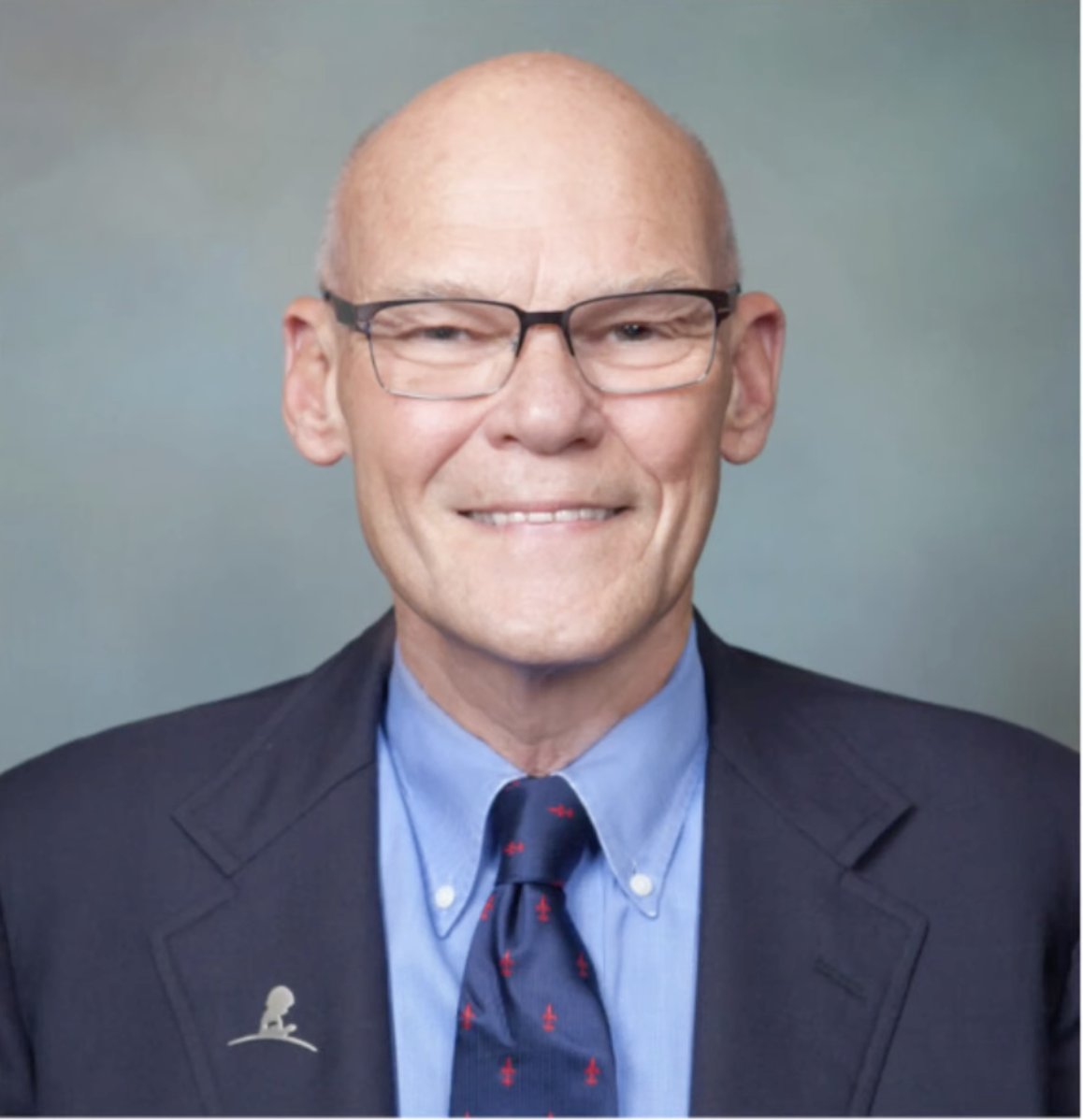James Carville is one of the most prominent political strategists of the era. He began his career in the 1970s and gained national recognition as the chief strategist behind Bill Clinton’s successful 1992 presidential campaign. Since then, Carville has continued to offer his unvarnished opinion on the Democratic Party. Prior to his appearance at the John F. Kennedy Jr. Forum on Nov. 1, 2024, Carville sat down with the HPR to discuss his role in the Democratic Party and offer advice for those interested in entering the political arena.
This interview has been edited for length and clarity.
HPR: In my generation, you are known as the “Ragin’ Cajun.” Those who followed you a little bit longer know you as the leader of the Clinton campaign. What do you view as your role in the Democratic party today, and how do you think it’s shifted over time?
James Carville: I’m 80, [and] I don’t work for anybody. There’s nothing to fire me from. Democrats around the country, kind of like me, and so I can say s—. People come up and say, ‘James, you can say s—, that no one else can.’ The reason I can [say these things] is because there’s nothing to cancel me from. Nobody can file a complaint with the dean at Harvard.
I have one of life’s real, great gifts — and not many people get this. I have a platform where I am able to speak freely and don’t give a f— about what others think. You can’t do that if you’re getting ready to enter the workforce. You can’t do that if you are in the workforce. Most people can’t do that if they’re part of an organization. But if you have enough money and there’s nothing to fire you from, you get to a place where you actually don’t give a f—, and it’s a great place to be.
HPR: Do you have any advice for people looking to get into politics or campaigns?
James Carville: What I tell any young person looking into getting political campaigns — and there are plenty of other things you can get involved in — [is] find a campaign, do your research, and find out who the manager is. Then, I would wait outside the campaign manager’s office. Tell them, ‘I just graduated college,’ you don’t have to say Harvard — that would freak them out. Say, ‘I graduated from college, I got three months’ worth of living expenses in the bank, [and] I will do anything you want. I’ll go get your laundry, pick you up at the airport, show up early in the mornings, [and] fix coffee. The only thing I ask is, after those three months, you tell me either ‘You can’t do this, get the f— out of here and work on Wall Street.’ Or, ‘Here’s something significant — go advance an event or handle a briefing for the candidate.’’
But understand when you’re applying, let’s say you’re applying in Wisconsin, they get 200 applications, donors, nieces, nephews, and you know, the county commissioner of Dane County [all] want someone over there. The big thing is that you put yourself in a position where you can succeed and someone can pay attention to you. That’s my advice to anybody who wants to do it: just go and figure out a way.
Understand, it helps if you have a high IQ, but it’s not essential. It helps if you have a very good education. But it’s not everything. What really matters is having a feel for expressing coherent thoughts in a short period because political communication is the only endeavor where you multiply as you subtract. The less you say, the more you’re heard. That’s so hard, but once you get that essential grasp of what it is to achieve success then you got it.
The best political advice I’ve ever heard in my life, unsurprisingly, came from Bill Clinton. Two things: study hard and meet as many people as you can. That’s the best advice I ever got in my life.



